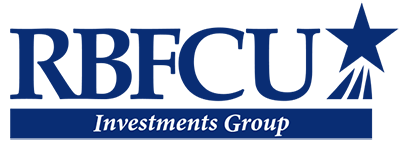How to Prepare Financially for Life’s Big Moments
What do children, career shifts, health challenges, education pursuits and retirement have in common? They're all BIG life events — with potentially hefty price tags. Through financial planning, however, you may tackle those future costs with more ease.

Each of our lives is as distinct as a fingerprint, and our financial values and goals are similarly varied. That’s why it’s helpful to think carefully in advance about each of the following milestone life events — and how you personally might prepare to navigate them financially and with greater confidence.
Arrival of a new child
The U.S. Department of Agriculture estimates that parents will spend more than $233,0001 to raise one child to the age of 17. That figure notably includes food, clothing, transportation, K-12 education expenses and health care — but not childcare, college or career training.
To help support your family as it grows, consider the following strategies:
- Build a family budget. If you’re not already in that habit by the time your first child arrives, it’s a great time to start. Unsure how to begin? A financial advisor who is knowledgeable about family finances may be able to help you.
- Create a family emergency fund to cover unexpected situations. This is a good practice for any household, frankly, as it can help preserve assets in savings and investment accounts.
- Consider investment solutions for your family’s goals, from college savings and retirement plans to life insurance products. You might also want to place money into separate cash reserves that reflect your family’s values and cultural heritage. For instance, you may wish to put aside money for a quinceañera celebration, bar or bat mitzvah party, sweet 16 bash, wedding, travel or first car.
Remember: Grandparents and guardians may have similar things to consider. And don’t forget that, as one of your family’s role models, you can help transform your family's ability to shape generational wealth.
Relationship changes, specifically marriage and divorce
Marriage
- Establish ongoing conversations with one another about money and financial goals early. Talk candidly about aspirations regarding homes, cars and other material items.
Sample questions to consider:- Will one of you be a stay-at-home parent?
- Do either of you plan to pursue a degree soon?
- How many children would you like to have, if any?
- Could you need to step into an eldercare role for family members?
- How might those choices impact your shared financial future?
- Set a budget together. This will help you get a clearer picture of your finances and what you want to prioritize with regard to spending.
- Update your account beneficiaries, your will, trusts and any other estate planning documents. These details might not be top of mind for very young couples, but, since life has a way of throwing curve balls, it can prove wise to address estate plans sooner rather than later.
»Tip: Growing a “bonus family”? Think about how you might want to include adult and minor stepchildren in your legacy plans (if at all).
Divorce
- Talk to your lawyer, financial advisor and (possibly) a tax professional early. Whether the divorce is amicable or heated, it’s wise to collect all relevant documents (e.g., tax returns, vehicle titles, mortgage statements, prenuptial agreement, etc.) in anticipation of a divorce settlement.
- Remember to update your account beneficiaries, your will, trusts and any other estate planning documents. If there are minor children involved in the breakup or you plan to remarry, you may want to pay special attention to these details.
- Consider your personal financial plan moving forward. Divorce can bring about a change in resources and expenses. In the emotion of it all, it's easy to lose sight of one's own future goals. Remember: A financial advisor may be able to help you chart a new course!
Large purchases, especially a first or new home
With proper planning, you may be able to enjoy the finer things in life (e.g., a car, luxury items) without breaking the bank or accumulating major debt. In fact, some people find that saving for a big, meaningful purchase gives them a sense of personal satisfaction.
For most of us, however, the largest material purchase in our lifetime is a home, be it a modest condominium or a luxury spread. Although younger generations may not yet aspire to buy property as early as their parents and grandparents, earmarking money every month for a possible down payment can still be a sound part of your overall strategy.
For individuals committed to buying a home, consider the following:
- Manage bills and debt wisely. These behaviors can reflect well on your credit score, with a strong one being likely key to qualifying for a mortgage.
- Save for the down payment and other costs. A pool of cash for new furniture, DIY-filled weekends, landscaping and unanticipated home repairs may help you avoid becoming “house poor.”
Sometimes a house represents more than a home. More affluent mature adults may wish to purchase a vacation property. Meanwhile, enterprising young couples may enjoy flipping starter homes on the weekends. All of these assets can have financial and tax ramifications that you may want to explore carefully in advance.
Education and professional training
When it comes to financial planning and education, the first thing that comes to mind for many people are college savings plans (also known as 529 savings plans, a tax-advantaged account). Put into place for a child when young, the plans can help pay for qualified educational expenses such as tuition, fees, books, supplies and student loan payments as well as room and board.
Yet those plans aren’t for every new college student. And some adults may decide to attend graduate or professional schools later in life, too.
As you look to add to your credentials or grow your skills through education, consider ways to lessen the potential financial impact:
- Examine the impact a student loan might have on your finances — for better or worse. The media is full of stories about the challenges of student debt, yet a college degree can open employment doors. Weigh the pros and cons. Take the time to understand the size of the loan you need versus the total amount offered as well as how much future payments might be. Are you a military veteran or dependent? You may qualify for education benefits2 through the U.S. Department of Veterans Affairs.
- Research education and training programs carefully. Pay close attention to “hidden” costs, such as fees or equipment needed. Looking simply to brush up on a few skills? Seek out low-cost or free reskilling or retraining programs offered in your local community or online.
- Employed? Check to see if your company will help cover some training costs. Many employers offer education participation programs or reimbursement options to help offset employee training expenses.
Job and career transitions
A better salary and benefits, more responsibility, a different location. These are just some of the motives behind changing jobs or careers. You might even launch your own business, which could bring different challenges and opportunities.
Unfortunately, you also could find yourself leaving an employer due to layoffs or downsizing.
Whether the transition is your decision or beyond your control, there are steps you can take to help navigate the financial challenges that career transitions may present.
- Mind your health insurance coverage. With rising health care costs, job-based coverage is critical for many people.
- Seeking a job? Ask your recruiter or hiring manager for benefit details prior to making a decision.
- Leaving a job? Through the Consolidated Omnibus Budget Reconciliation Act (COBRA), the federal government may help you keep your current plan for a period of time — although premiums may be much higher.
- Keep an eye on your budget.
- If you’ve lost your position, prioritize your expenses and decrease your discretionary spending.
- If your salary has increased, you may also wish to consider setting aside more funds in a retirement account.
- Tend your employer-sponsored retirement accounts carefully. Don’t lose track of what you’ve earned! If you change jobs, for instance, you might want to roll those funds over3 to another account.
Special considerations:
- Separating from the military? Review the special benefits4 available to you.
- Fired or laid off? Review what benefits5 and programs may be available to you as a Texas resident.
Health concerns
It’s impossible to predict when or if a traumatic health event or illness will happen. Preparing financially6 for an unknown future medical emergency could help you avoid medical debt that could shatter your nest egg.
Here are some other strategies worth considering:
- Review your health insurance annually. This can help ensure you have the right coverage for you and your family's health care needs.
- Make sure prescription drugs are a part of your health insurance plan. You may also wish to seek out resources and pharmacies that may help reduce medication costs, especially any needed for ongoing health issues.
- If you’re eligible, you may want to take advantage of health savings accounts (HSA) or flexible spending accounts (FSA). These can help cover expenses like co-pays and prescriptions.
- Consider adding disability or long-term care insurance coverage. If you’re fortunate enough to be able to purchase these products at work, explore the options carefully. Long-term care and life insurance, however, may also be purchased elsewhere.
Retirement
Retirement is a significant life — and financial — event. In fact, it’s often the number one reason that someone first seeks financial advice.
Ideally, retirement planning starts as early as possible, combining a variety of strategies and solutions that advance your long-term vision.
Here are a few retirement planning basics to keep in mind:
- Participate in any retirement or pension programs offered by your employer. And don’t forget to take your money with you when you leave a job. Account rollovers and conversions may be helpful, provided that you’re eligible. As your career evolves, be sure to keep tabs on previous pensions and other older accounts.
- Consider contributing to separate retirement and savings accounts, such as an Individual Retirement Account7 (IRA). There are annual caps on how much you can contribute, but putting the money away for later may prove savvy.
- Take a closer look at retirement costs. This can be especially helpful as you move closer to your retirement target age. Having a clearer picture of what you’ll need may help you clarify retirement goals and potentially make the transition easier, too.
- Explore playing “catch up” on your retirement savings at the age of 50 or older. The IRS allows additional contributions8 to help you save more as you get closer to retirement. There are other strategies after age 50 that could be useful, too. A financial advisor can also help you take a closer look at options.
Legacy planning
No matter when or how it happens, the loss of a loved one9 can be incredibly difficult. It can even feel emotionally overwhelming. Still, important financial decisions often must be made in the wake of loss.
Fortunately, you can take the following steps now to help make that transition a little easier for your loved ones.
- Make or review your estate plan carefully. Experts recommend revisiting it each year or at least following major changes in your life (e.g., an inheritance, change in the size of your family).
- Create documents that spell out exactly what you want to have happen when you’re gone. Wills, trusts and guardianship documents are important. Other options may include your preferences for end-of-life care ("living will" or "health care directive") as well as both medical and durable powers of attorney.
- Keep the beneficiary designation information current on all your accounts — especially joint accounts. This can help with everything from your heirs avoiding probate to ensuring your partner has sufficient cash on hand if you were to pass away suddenly.
- Maintain records (e.g., title, insurance papers, pre-purchased burial plans) in an accessible place. And don’t forget to share the location with someone you trust, even if that’s only your attorney.
»Tip: Have considerable assets to manage or transfer? Have you recently inherited significant wealth? As you work through what needs to be done, a financial advisor may be able to help you tap into their network of estate and tax professionals.
The takeaway
As you navigate the big events of your lifetime, experience and knowledge can prove critical to making financial decisions that suit your unique situation, vision and goals.
Want to talk with someone as you prepare financially for life’s big moments? RBFCU Investments Group is ready to listen.




